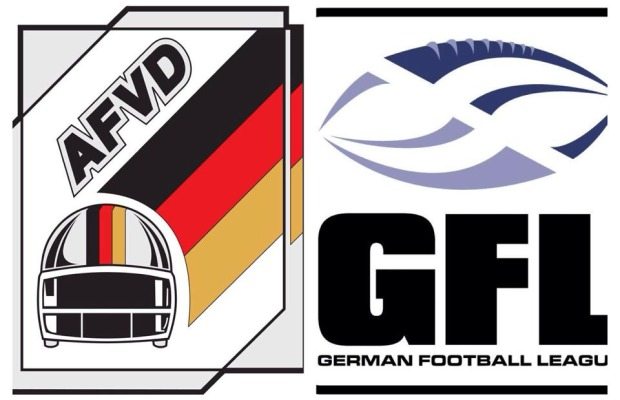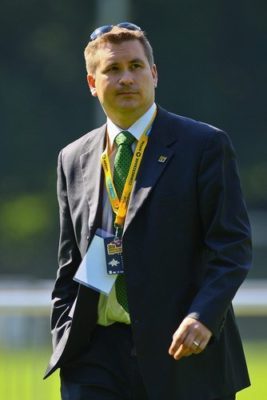German Federation Says No To 2015 IFAF World Championships: What’s Next?

Germany can’t host in 2015; IFAF to meet on December 29 to decide on fate of World Championships
The German American Football Federation – AFVD – was approached by the International Federation of American Football – IFAF – on December 15, five days before the World Championships were cancelled, asking them if they could host the event. This was the response by the German federation, although for some reason the timeline is slightly out of whack. In addition, it is a criticism of IFAF and the other member federations of IFAF. Throughout, the AFVD refers to the World Championships as the World Cup. The only editing done was for clarification or continuity.
The International Federation of American Football (IFAF) has informed the German federation AFVD and other member nations that the 5th World Championships will not take place at Stockholm in 2015.
At the same time IFAF President Tommy Wiking (Sweden) declared that he will be on leave for the time being.
The IFAF Executive Board is considering the possibilities of finding another member federation willing to host the event in the upcoming year.
In that respect the AFVD was asked on 12/15/2014 to evaluate whether a World Championship tournament could be held in Germany instead of in Sweden. Such an alternative event would have consisted of a final round with a reduced field of competitors and would have incorporated an additional payment of a registration fee of 30,000 Euro per participating team.
The AFVD’s board has thoroughly examined all possibilities.
However, with the AFVD hosting two major sporting events in Germany in 2015 – the European Junior Championships in Dresden and the World Cheerleading Championships in Berlin – the AFVD’s board has pointed out that the AFVD, in cooperation with its affiliates, already – contributes above average to the international development of our sports. In addition, the AFVD has in the recent past hosted events, as a substitute host, formerly scheduled in other countries and thus taken on that burden: in 2000 (EC 1999), 2001 (EC finals), 2003 (World Cup), 2010 (EC 2009), and 2013 (EJC).
The IFAF Board is comprised of representatives from a number of nations that may qualify to be possible substitute hosts. For years, these organizations from these nations have postulated ambitious goals for the political course of IFAF, but have not always taken into account reasonable financing strategies. As a result, entry fees for IFAF tournaments have increased over the past years, the AFVD and other member federations had to pay five-figure-sums for attending tournaments in addition to its own costs of staffing the teams itself.
Since the AFVD financial plan for the fiscal year of 2015 has already been budgeted and with reference to these additional costs of the past and the the two planned major events next year, the AFVD has informed IFAF not to see Germany as a substitute host for the 2015 World Cup. Whether another federation will agree to act as a substitute host remains to be seen at the moment. However, the AFVD has asked IFAF for a quick clarification before Christmas, as to whether the World Cup will be played in 2015 or moved to a later date.
IFAF to Meet on World Championships Decision
An IFAF meeting will be convened before the end of the year to discuss whether to move the 2015 championships to another country, or to postpone them for a year or two. The major obstacle in 2016 would be of course the Summer Olympic Games to be held in Brazil.
To be sure, this turn of events is nigh on a catastrophe given the short notice. Hosting an event of this magnitude, even in a trimmed down guise as suggested by the German federation, is an enormous undertaking. It requires all the facilities within one single city, hotel accommodation and transportation during the peak summer months (at least in the Northern hemisphere) and plenty of funds to handle all that, plus promotion which involves coordinating TV, digital and newspaper communication. And of course public support is a basic necessity. It would not bode well for an international audience to see empty stadiums in the premier event for American football internationally.
Roope Noronen from IFAF:
“Naturally we are aware of the ever narrowing time frame and how difficult it would be for even the best prepared countries to organize everything so quickly. Nevertheless we have been approached by serious and capable potential host countries who want to help. And we are very grateful for this. We also have approached a number of others ourselves. We will be having a meeting on Monday December 29 to make a decision.”
Not many countries would meet these criteria on short notice. The only one which comes to mind immediately, given that Germany has said no, is Austria. They held the European Championships in 2014 and these were highly successful in every aspect. They also hosted the 2011 World Championships, again in a spectacular fashion. Here again though, they may be of the same attitude as Germany given how much they have invested into football to date.
Some have suggested Australia. The weather, although winter there in July, is still ideal for football. But the costs of getting there would seem to be prohibitive for those countries who had already budgeted for a European venue. And fan support might be a problem. The travel aspect might be applied to Japan as well; Japan hosted the 2007 championships and won the previous two (1999 and 2003). They have, unquestionably, the fan support. But again the logistics would be daunting.
Both Canada and the United States have been suggested and these could be the best alternatives. They both have a history of putting on football tournaments and events and could well meet the other criteria. The question is, would they be willing? Football in Canada is in full swing at that point and interrupting it is impossible at this short notice. So that brings it back to the USA. Facilities would be available as would be players and coaches. The sport is hugely popular so fan support would not be a problem. If IFAF is bound and determined to hold the event in 2015, the United States would seem to be the logical choice.
What then would happen if the championships were postponed until 2017? The initial negative impact would be on the teams themselves, who have prepared for four years for this tournament. To an athlete focused on the premier tournament in their sport, a sudden two year delay can be devastating. Many are maybe on the verge of hanging it up, many perhaps won’t have the same time available to commit as they do now.
However, in the long run, postponing it may well be the only alternative.
When the world is watching, you had better put on a good show.
